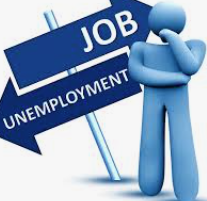
A high unemployment rate can have numerous and significant impacts on a country, affecting various aspects of society and the economy. Here are some key ways in which a high unemployment rate can affect a country:
Economic Impacts
- Reduced Economic Growth: High unemployment leads to a decrease in consumer spending, as unemployed individuals have less income to spend on goods and services. This reduction in demand can slow economic growth and lead to a recession.
- Decreased Tax Revenues: With fewer people employed, the government collects less income tax. Additionally, businesses earn less revenue and profits, leading to lower corporate tax collections. This can constrain the government’s budget and its ability to fund public services.
- Increased Government Expenditure: Governments often need to increase spending on social welfare programs, such as unemployment benefits, food assistance, and housing support, to help those without jobs. This can lead to higher budget deficits and increased national debt.
- Lower Productivity: Long-term unemployment can lead to skill degradation among workers, reducing the overall productivity of the labor force. This can make it harder for businesses to find skilled workers when the economy eventually recovers.
Social Impacts
- Increased Poverty and Inequality: High unemployment often leads to higher poverty rates as individuals and families lose their primary source of income. This can exacerbate income inequality, especially if the unemployment rate is higher among lower-skilled or marginalized groups.
- Mental and Physical Health Issues: Unemployment is associated with higher levels of stress, anxiety, depression, and other mental health issues. The lack of financial stability can also lead to physical health problems due to reduced access to healthcare and an inability to afford healthy food.
- Social Unrest and Crime: High unemployment can lead to increased social unrest, protests, and even crime rates, as individuals facing financial desperation may turn to illegal activities to support themselves and their families.
Political Impacts
- Political Instability: High unemployment can lead to dissatisfaction with the government and political leaders, resulting in decreased public support and trust. This can lead to political instability, changes in government, and the rise of populist movements.
- Policy Changes: In response to high unemployment, governments may implement various policy measures, such as stimulus packages, job creation programs, or changes in labor market regulations. These policies can have long-term effects on the country’s economic and political landscape.
Long-Term Impacts
- Structural Unemployment: Persistent high unemployment can lead to structural unemployment, where there is a mismatch between the skills of the labor force and the needs of the economy. This can make it more difficult to reduce unemployment in the long run.
- Intergenerational Effects: The children of unemployed individuals may suffer from reduced educational and developmental opportunities, perpetuating a cycle of poverty and unemployment across generations.
Global Impacts
- Reduced Global Trade: High unemployment in one country can lead to reduced imports, affecting the economies of trading partners. This can have a ripple effect on the global economy.
- Migration Pressures: High unemployment may drive individuals to seek employment opportunities in other countries, leading to migration pressures and potential social and political challenges in both the home and host countries.
In summary, a high unemployment rate can have wide-ranging and profound effects on a country’s economy, society, politics, and even its standing in the global community. Addressing unemployment requires comprehensive and targeted policy measures to stimulate job creation and support affected individuals and families.